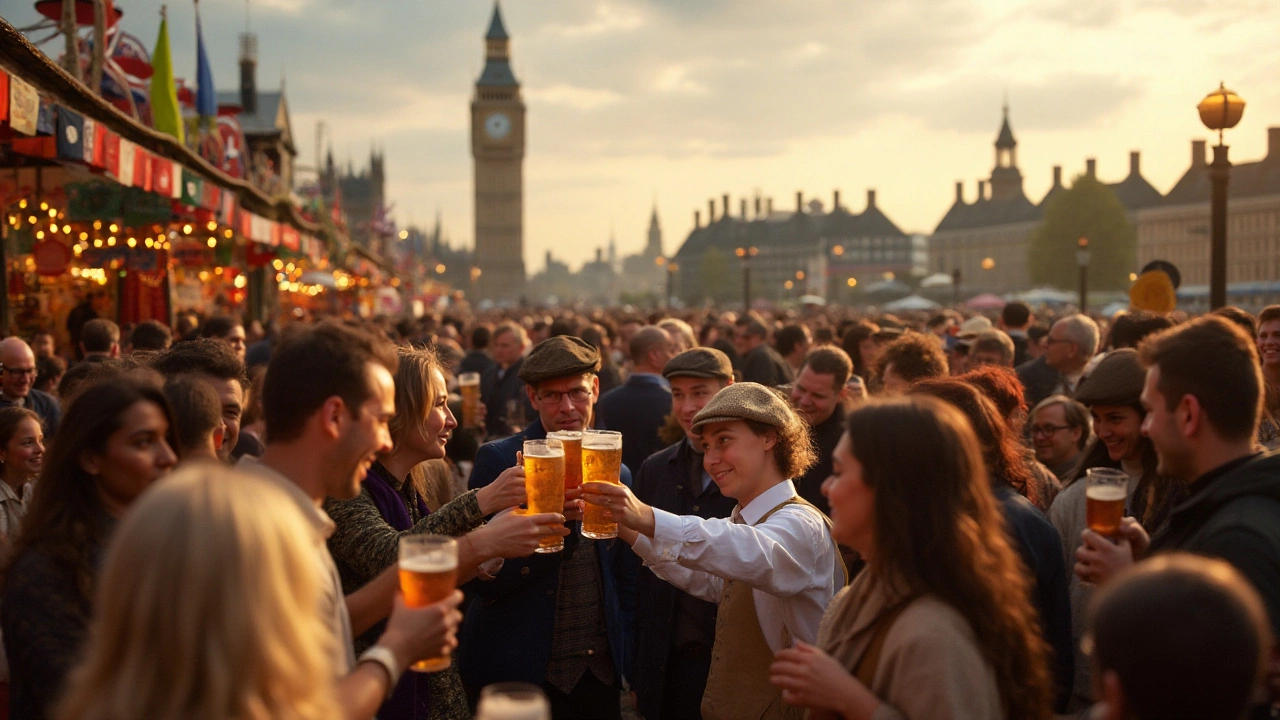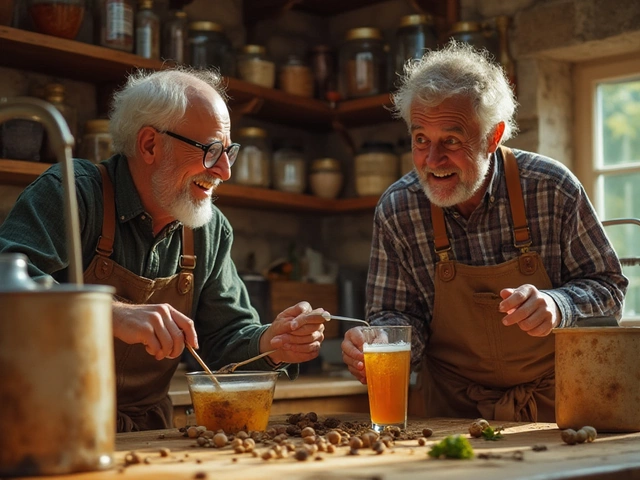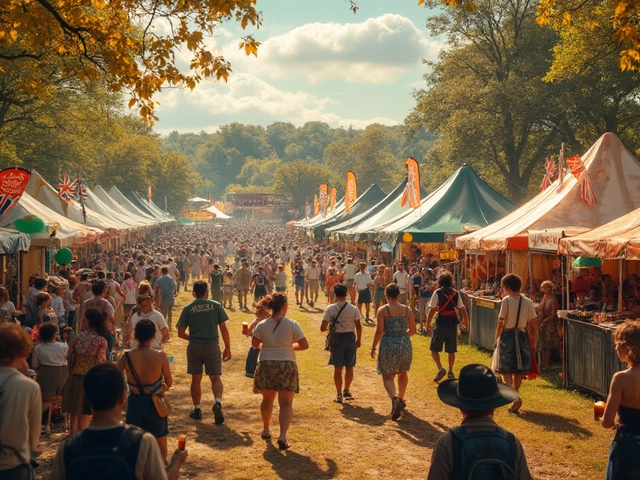Beer, the ancient elixir of vitality and camaraderie, has become a universal language spoken at its many festivals worldwide. These gatherings don't just offer a drink; they present an experience brimming with flavors, stories, and a deep dive into brewing traditions from every corner of the globe.
From the frothy tents of Germany's Oktoberfest to the innovative taps of the Great American Beer Festival, each event has something unique to offer. But among them all, which one truly earns the crown as the 'King of Beer in the World'? In this exploration, we'll journey through the most celebrated beer festivals, each vying for the top spot in the hearts of beer lovers. Along the way, you'll uncover the distinct styles and community vibes that elevate these gatherings, making them the stuff of legends.
- The Global Stage: Renowned Beer Festivals
- Tasting Traditions: Cultural Significance
- Behind the Brews: What Sets Them Apart
- Plan Your Journey: Tips for Festival Goers
The Global Stage: Renowned Beer Festivals
Dive into the captivating world of beer festivals, where cities transform into lively hubs brimming with laughter, clinking glasses, and an aroma of hops that pulls aficionados from every corner of the earth. Among these, Germany's Oktoberfest stands as a titan—an event that has set the blueprint for what a beer festival ought to be. With its tents sprawling across Munich, Oktoberfest attracts several million visitors each year, offering them a taste of authentic Bavarian brews in mugs so large they could be mistaken for small barrels.
On the other side of the globe, the Great American Beer Festival (GABF) in Denver, Colorado, provides a different kind of majesty. Heralded as one of the largest beer festivals in the United States, it hosts over 2000 breweries displaying their craft. Unlike Oktoberfest, which showcases traditional styles, GABF offers an eclectic palette, from robust stouts to experimental pilsners infused with jalapeños. This event is not just about tasting; it’s a spectacle where brewers compete for medals that signify excellence. According to the Brewers Association, this festival alone contributed a staggering $35 million to the local economy in Denver, highlighting the significant impact these festivals have beyond just the beer community.
In Belgium, Belgium Beer Weekend is a celebration of craftsmanship and history. Nestled in the heart of Brussels, this festival pays homage to Belgium's centuries-old brewing traditions, featuring over 400 varieties from the country's most iconic brewers to its small-scale artisans. Breweries here often collaborate, creating unique blends that are exclusive to the festival. The event is characterized by its picturesque setting, with stalls lined around historical architecture, providing both an immersive and educational experience about Belgian beer heritage.
Across the Pacific, Japan's Oktoberfest has become a cultural fusion of East meets West. While it might mirror Munich's event in inspiration, it stands out uniquely with its Japanese flair. Held in various locations like Yokohama and Tokyo, these festivals include live bands playing German folk music while Japanese delicacies like yakitori are paired with steins of imported Bavarian beer. "Beer is a medium of friendship and exchange," remarked Hiroshi Sato, a renowned Japanese beer sommelier at a recent festival, capturing the essence of what these gatherings mean on a global scale.
In these celebrations, global beer events echo the creativity and unity that beer continues to inspire worldwide. Whether it's through the meticulous preservation of traditional methods or a daring leap into flavor experimentation, these festivals offer more than just a drink; they provide a taste of the heart and soul of each brewing community. Attendees find themselves not just witnesses to a festival, but participants in a story that keeps evolving with every pour.
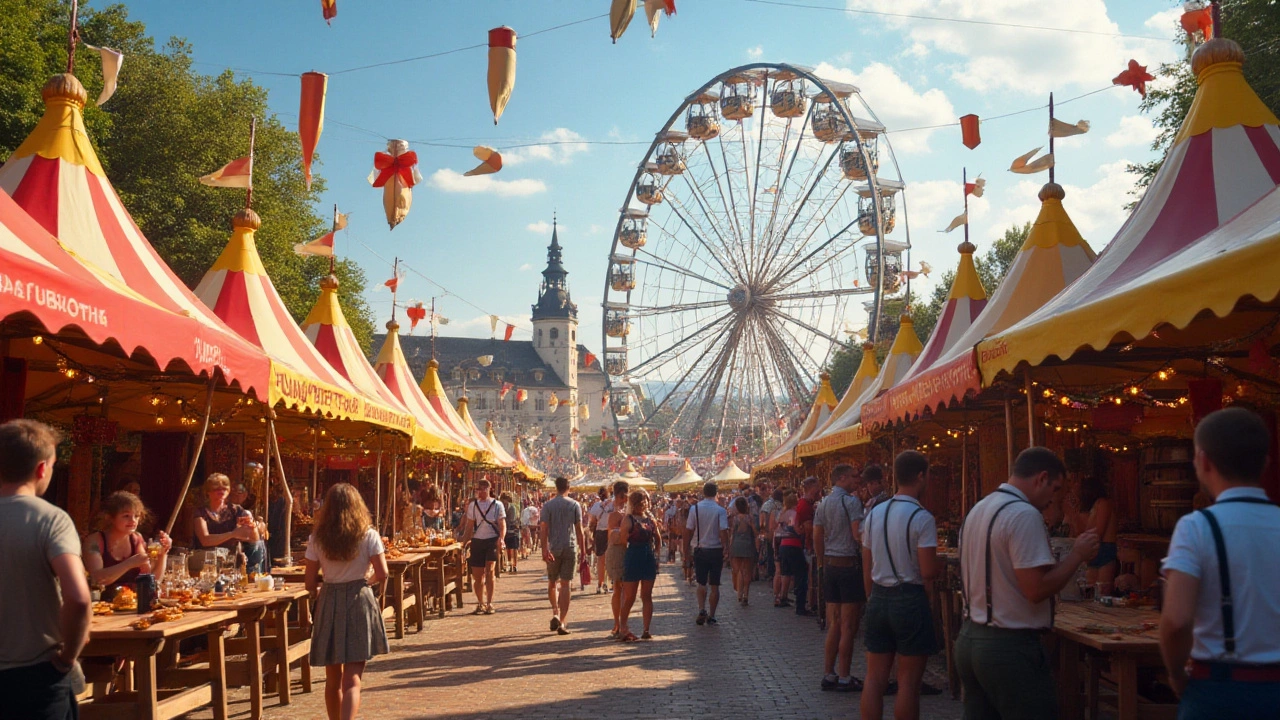
Tasting Traditions: Cultural Significance
Beer brings people together, weaving a tapestry of history and tradition that transcends language and borders. Throughout centuries, this amber-toned drink has evolved to become not just a staple beverage but a cultural emblem in many societies. Each beer festival celebrated around the world is a testament to this rich heritage, showcasing not just the artistry of brewing but the stories and societal influences that have shaped these iconic events.
Take, for instance, Germany's Oktoberfest, perhaps the most famous beer festival on the planet. This event dates back to 1810, originally held to honor the marriage of Crown Prince Ludwig to Princess Therese of Saxe-Hildburghausen. What began as a royal celebration has transformed into a world-renowned phenomenon, pulling over six million visitors from across the globe and serving approximately seven million liters of beer each year. Oktoberfest is not just about drinking; it's a vivid display of Bavarian culture with traditional music, dance, and gastronomic delights that celebrate the region's unique heritage.
The rich tradition of Oktoberfest allows people to experience Bavarian life in a way that feels both authentic and thrilling, remarked Claudia Bauer, curator of the Bavarian Cultural Museum. It's about drinking beer, yes, but it's also about preserving a way of life that connects generations.
Meanwhile, across the Atlantic, the Great American Beer Festival in Denver, Colorado, has made its mark by celebrating innovation and variety. This festival might be younger, having started in 1982, yet it's a hub for creativity in brewing, showcasing what makes American beer distinct—its endless reinvention. Typically attracting hundreds of breweries and thousands of different styles, this festival offers a platform for brewers to experiment and push the boundaries, reflecting a culture of innovation embedded in American society.
In Belgium, there's the Bruges Beer Festival, where visitors step into a town seemingly frozen in medieval charm. Belgium, often hailed as the beer capital of Europe, uses this festival to highlight its rich history and the art of fermentation that has been honed over centuries. It's a cultural affair, much more than just a showcase of the country's delicious brews. Belgian monks have historically played a crucial role in preserving brewing methods. The Trappist ales, being a perfect example of beer's connection to cultural and even religious practices, are just one of many styles visitors can explore in this enchanting festival setting.
Each of these festivals tells a unique story, a narrative that is inherently tied to the beer itself. Understanding the cultural significance of these events enriches the experience and provides insights into the societies that host them. Whether it's Germany's ode to Bavarian tradition, America's celebration of entrepreneurial spirit in brewing, or Belgium's homage to historical craftsmanship, these festivals capture the essence of their cultures, making them significant touchstones for how communities continue to bond over a shared love for beer.
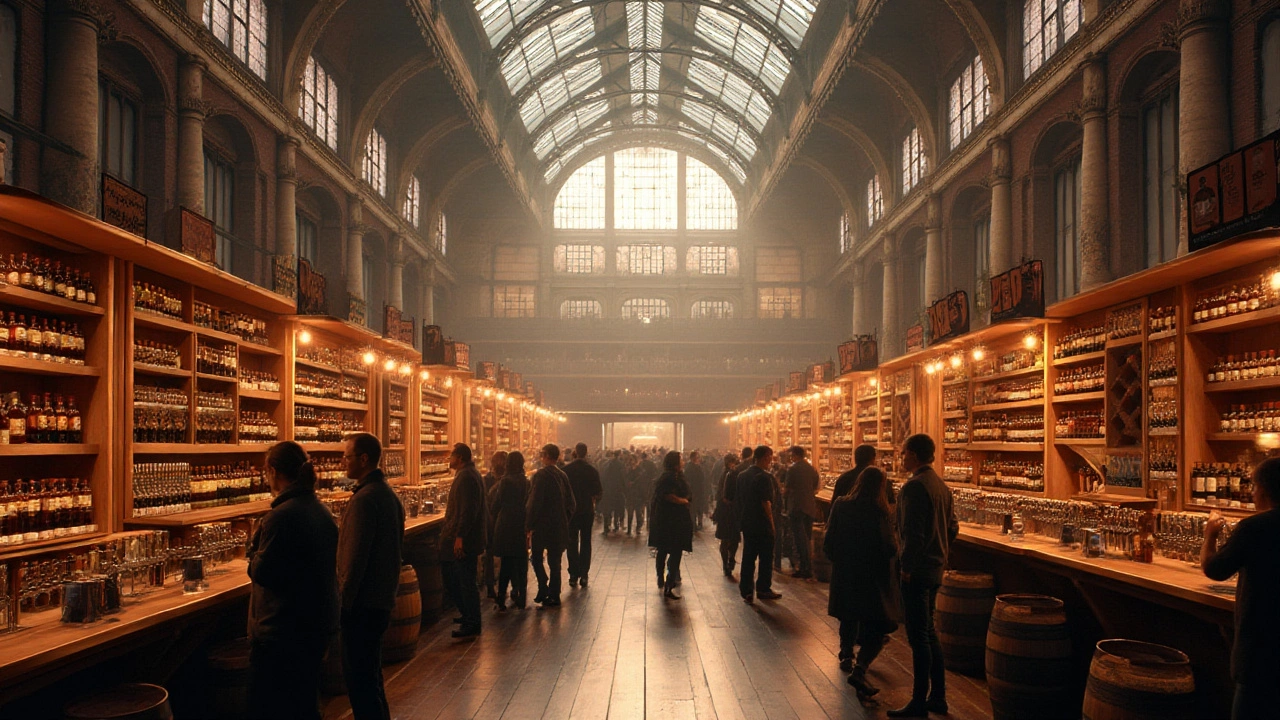
Behind the Brews: What Sets Them Apart
When it comes to beer festivals, each event has its unique charm and flavor, but what really sets them apart? It's the combination of history, culture, and innovation that infuses life into these celebrations. Consider Munich's renowned Oktoberfest, which stands as a grand homage to Bavarian tradition. Rooted deep in history with origins dating back over two centuries, it combines not just beer but an exploration of cultural heritage. Visitors are invited into a world where lederhosen are the norm and the air is filled with the sound of traditional oompah bands. Such events go beyond just serving beer—they offer a chance to delve into the heart and soul of the region's customs and lifestyle.
On the other side of the globe, the Great American Beer Festival in Denver is famous for its highly competitive nature, showcasing the sheer diversity and creativity of American craft breweries. It’s a place where bold and unique flavors take center stage, reflecting the entrepreneurial spirit of the craft beer movement. Hundreds of breweries line up, each showcasing their finest, in a competition that awards the best with coveted gold and silver medals. This festival also serves as a melting pot for beer culture and new trends, offering workshops and tasting sessions led by industry experts.
What's truly fascinating about these festivals are not just their size or variety but the stories behind each brew. Whether it's a small family-run brewery recounting generations of crafting expertise or a modern startup shaking up the scene with innovative techniques, these tales bring an added layer of depth to the tasting experience. For many attendees, the opportunity to talk directly to the brewers adds immense value, making each sip more meaningful. Those who embark on this journey of taste and tradition often come away with not just a favorite beer, but a profound appreciation for the artistry involved in brewing.
As Michael Jackson, the renowned beer writer once noted, "Beer is proof that God loves us and wants us to be happy." His words resonate deeply at these events, where joy is brewed as much as it is consumed.
And let's not forget about the unique brews that these festivals inspire. For example, the Belgium Beer Weekend in Brussels is not just about tasting world-famous Belgian beers but also experiencing special editions brewed just for the event. These limited-release beers often become legend, with enthusiasts from around the world seeking them out. The innovation is equally present in smaller festivals like the Beavertown Extravaganza in London, where brewers are encouraged to push boundaries and surprise attendees with experimental flavors ranging from chili-infused ales to dessert-inspired stouts.
For those planning to dive into these festivals, there are a few insider tips to enhance the experience. Firstly, engage with the stories; each beer has one. Ask questions, learn about the ingredients, and understand what makes a brew stand out. Secondly, pace yourself. With the vast array of offerings, it’s easy to go overboard. Take your time to savor each taste. Finally, participate actively in any educational activities or workshops; they’re priceless opportunities to enhance your understanding of the craft. As these festivals continue to evolve, so do the extraordinary experiences they provide, cementing their place as the ultimate celebration for beer enthusiasts worldwide.
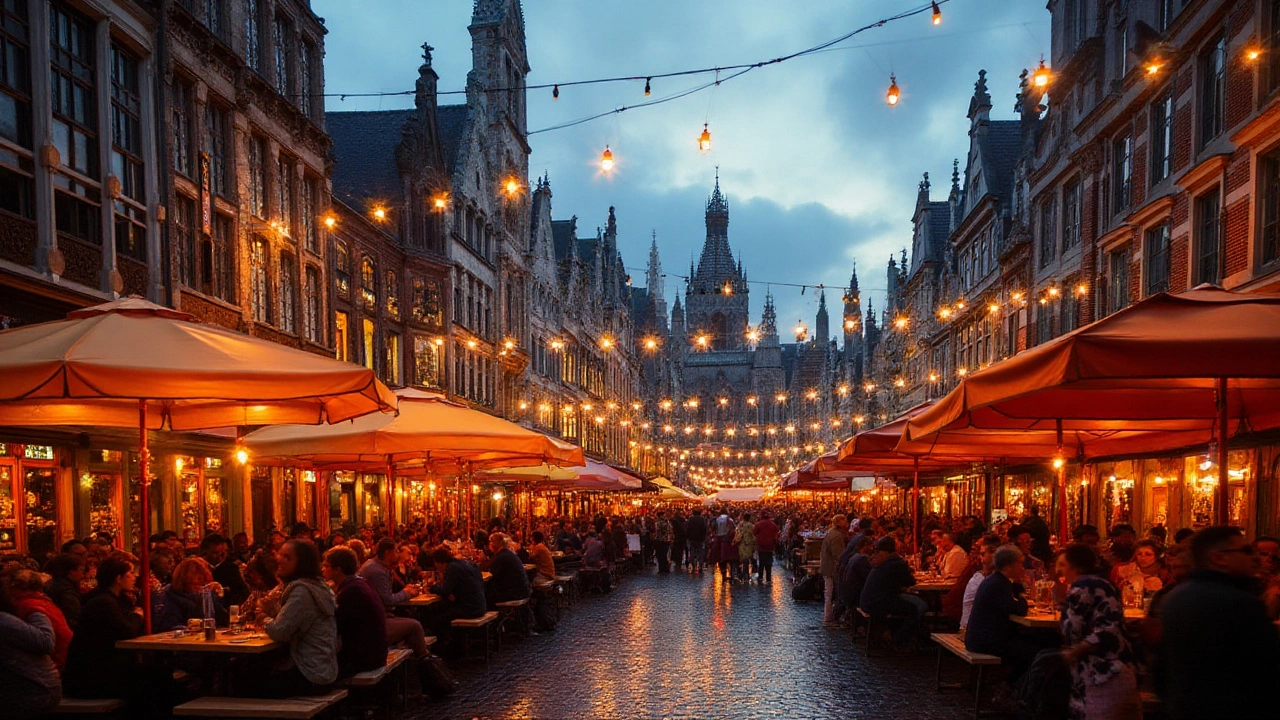
Plan Your Journey: Tips for Festival Goers
Whether you're a seasoned aficionado or a wide-eyed newcomer exploring the frothy realms of global beer festivals, a little preparation goes a long way in ensuring a memorable experience. Start by doing your homework on the festival you plan to attend. Renowned festivals like Oktoberfest in Munich and Belgium's Bruges Beer Festival offer varied experiences, from traditional lager showcases to craft explosion events. Understanding the schedule and key attractions of your chosen festival can help tailor your trip to suit your interests, allowing plenty of time to wander through aisles of hops-driven wonder.
Once you've set your sights on a destination, logistics become your next hurdle. Booking your accommodation well in advance is vital, particularly for heavily attended festivals. Many visitors choose to stay near the main festival grounds, turning the nearby accommodations into a buzzing community of enthusiasts and providing ample opportunities to share stories and recommendations over breakfast. For some festivals, public transport is not only a convenient option but also part of the festival experience itself as you find yourself surrounded by likeminded revelers increasingly animated with each passing stop.
At the heart of any beer festival is the tasting experience, a culinary art for your palate. To make the most of it, prepare a strategy. Highlight the breweries or specific beers you simply must try. Utilize festival apps or guides, if available, to streamline this process. These tools often provide valuable insights into each brew's ABV levels, tasting notes, and the optimal time to visit specific stalls to avoid peak crowds. Embrace spontaneity too, leaving ample room in your schedule for unexpected delights and hidden gems.
Moderation, as any festival veteran will tell you, is the secret sauce. Don't let the Barrel Thief become who you are. Stay hydrated, employing the time-tested rule of alternating a glass of water with each beer sample. Comfy footwear is a must, given you'll be on your feet for most of the day. Remember, these festivals are as much about the journey as the destination. This ethos transcends beyond beer, weaving together people from all walks of life in a shared celebration of culture, innovation, and community.
"The best beer drinkers are explorers at heart; it's about discovering the new, savoring traditions, and sharing stories." – John Professor, renowned beer historian.
Finally, while many might consider souvenirs as the usual t-shirt and pint glass, think broader. Seek out keepsakes that encapsulate the spirit of the festival, such as local art, brewery coasters, or signed memorabilia. Keep a festival diary, jotting down the highlights—your thoughts on that unexpected English mild, the sunny afternoon serenade by the local band, or the laughter shared with newfound friends—making your own journey through the hops and malt not just a trip, but a narrative of unforgettable tales to savor for years to come.
